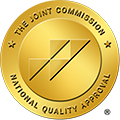Our health care system would not exist without the dedicated professionals who make up its backbone. Physicians, nurses, pharmacists and other specialists embody compassion and a genuine desire to heal. Still, the immense pressure and unique challenges associated with these essential roles can lead to work burnout, paving the way for self-medication with drugs and alcohol.
Warning Signs of Work Burnout
Many health care workers push their needs aside in favor of their commitment to patient care. The resulting work-related burnout manifests in physical, emotional and mental exhaustion due to prolonged stress.
Red flags of burnout can include a range of symptoms, including:
- Chronic fatigue
- Insomnia
- Forgetfulness
- Impaired concentration
- Physical symptoms such as chest pain or headaches
- Appetite loss
- Weakened immune function, leading to increased illness
- Little to no interest in previously enjoyable hobbies
- Pessimism, apathy or irritability
- A lack of pride in work accomplishments
The ongoing COVID-19 pandemic has only heightened these pressures, bringing about increased exposure to suffering and death, more vulnerability to contagion and physically demanding work schedules. In an environment where stress is unrelenting, some health professionals turn to drugs and alcohol as a coping mechanism.
The Far-Reaching Consequences of Substance Abuse Among Health Professionals
Opioids like fentanyl are among the substances health professionals tend to abuse. These highly addictive painkillers are readily available in most medical environments, which is a dangerous situation. Fentanyl can be up to 100 times more potent than morphine, leading to a high risk of overdose and death. Regular use can lead to dependency and withdrawal symptoms, making it challenging to quit without qualified treatment.
Substance abuse among health professionals isn’t only a personal concern – it also poses risks to patient safety and the overall quality of care. Unfortunately, this group often faces unique barriers to seeking help, especially fear of stigma and career repercussions.
Start Your Recovery on Your Terms
At Acworth Outpatient Detox, we have specifically designed our services to help people recover from addiction without putting their personal and professional obligations on hold. We provide discreet, effective and scientifically backed detox, withdrawal symptom management and substance abuse counseling that fit into your busy and demanding lifestyle.
With our outpatient model, you don’t have to leave your career or family behind to enroll in a long-term residential rehab program. We remove these obstacles, clearing a path to recovery that respects your existing commitments.
Substance abuse among health professionals is an underreported problem that calls for urgency, empathy and discretion. We commit to providing the support, guidance and treatment you need to regain control of your life and continue serving your community. If you or someone you know is struggling, reach out to us today.






